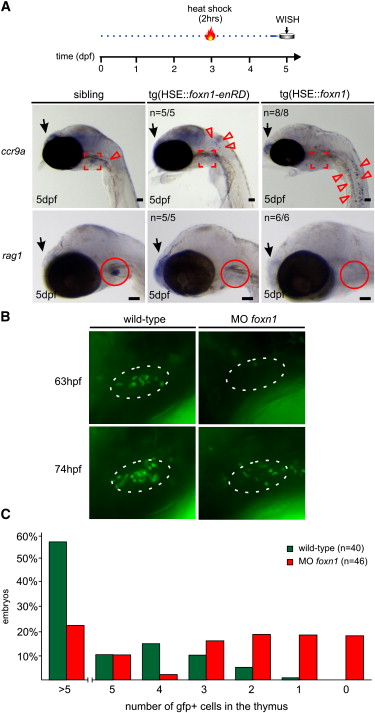Fig. 6 Evolutionarily Conserved Function of foxn1 in Thymopoiesis
(A) Interference with foxn1 function by transient overexpression abolishes thymopoiesis in transgenic medaka embryos. Expression of a dominant-negative form of foxn1 leads to accumulation of ccr9a-expressing lymphoid progenitors (red arrowheads) in the vicinity of the thymus (marked in red), whereas overexpression of wild-type foxn1 leads to their dispersal in the entire embyro (top panels). Thymopoiesis fails as indicated by the lack of rag1-expressing cells (bottom panels). The number of embryos with the indicated phenotypes is shown. Scale bars represent 50 μm.
(B) Impaired thymopoiesis in zebrafish foxn1 morphants. Photographs were taken at the indicated time points from the thymus region of wild-type (left panels) or morphant (at 200 μM each; right panel) embryos of the ikaros::gfp transgenic line. Note that thymus homing eventually resumes in morphants owing to the dilution of morpholinos in dividing cells.
(C) Thymus homing in wild-type and foxn1 morphant zebrafish embryos. The percentages of embryos with the indicated number of cells in the thymus are shown for the 63 hpf time point.
Reprinted from Cell, 138(1), Bajoghli, B., Aghaallaei, N., Hess, I., Rode, I., Netuschil, N., Tay, B.H., Venkatesh, B., Yu, J.K., Kaltenbach, S.L., Holland, N.D., Diekhoff, D., Happe, C., Schorpp, M., and Boehm, T., Evolution of genetic networks underlying the emergence of thymopoiesis in vertebrates, 186-197, Copyright (2009) with permission from Elsevier. Full text @ Cell

